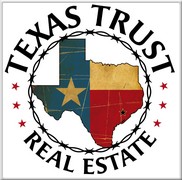

Homeowner Tips
You've done it. You've bought a home and now own part of The Dream. In the process you've also acquired many responsibilities and concerns. There are mortgage payments to make, records to keep and maintenance work to complete. Below are a few tips for the new owner.
Mortgage payments
Every month you'll receive a statement from your lender reminding you that your mortgage payment is due, or, if you have a coupon book, you'll have to remember to send your payment on time.
Some lenders can automatically deduct monthly payments from your checking account. This saves time and postage costs. It can also prevent the possibility of missing a payment. Ask your lender about this service.
Furnishing and renovating
You've just moved in. Most of your belongings are still in boxes. But you've decided the first thing you want to do is redo the first-floor bathroom, buy new furniture for the living room and strip the wallpaper from every wall in the house.
Stop. Put your hands in your pockets, seal your wallet, tie yourself to a chair. Don't do anything major right away.
Acquiring a home requires some adjustment. Your mortgage payment may be higher than the rent you've been paying, so give yourself time to get used to the new cash regimen. Too many new buyers realize too late that they had no idea how much it costs to run a home.
The message here is simple common sense. Go for a slow, smooth transition. You'll probably be living in this house for a good while; don't try to do everything at once, even if you can afford it.
Papers to keep
Keep a copy of every document you signed at the closing. It's especially important to keep a copy of your settlement form. It will be useful when you file taxes and if you sell your home. For example, the real estate taxes and loan discount points you paid as part of your closing costs are tax deductible. So, when you file taxes, refer to the settlement form to get these amounts.
In addition to the closing documents, keep all insurance records, such as homeowners and title insurance. You would need to have access to your homeowners policy if, for example, someone were to sue you because they were injured on your property. You would refer to your title insurance policy if you were to find a flaw in the title after you bought the house.
It's a good idea to keep these important records in a safe place. You may want to store them in a safety deposit box or a bank vault in addition to keeping a copy at home.
Home maintenance
Your mortgage requires you adequately maintain your property and not allow it to deteriorate. As a homeowner, you can't afford to sit back and postpone maintenance. You can extend the life of appliances and fixtures and avoid expensive repairs by performing routine maintenance yourself.
It's a good idea to set up a budget for your home's regular maintenance and unexpected repairs. You may want to budget 1 percent of the purchase price of your house to cover annual maintenance and repairs. You also may want to stick to a regular savings plan to cover essential bills, emergency repairs and large, periodic expenses such as property taxes and homeowners insurance.













 Equal Housing Opportunity |
Equal Housing Opportunity |